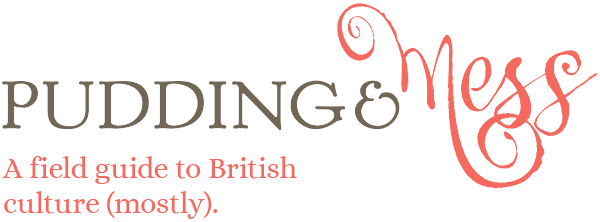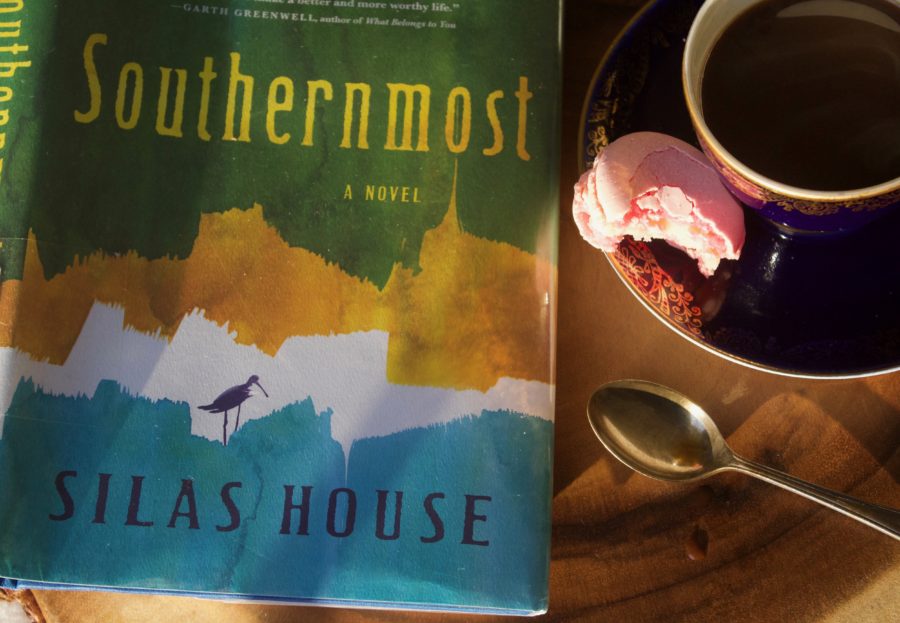~Southernmost Silas House In Tennessee a flood wipes out a small town and its Pastor, Asher Sharp, extends an invitation to two men, a gay couple, to spend the night at his own house. But his wife refuses to allow it. It is a seemingly simple gesture which sparks a radical change within Asher who goes on to deliver an emotional and fervent sermon in front of his congregation which (because, of course) is filmed by a young parishioner and subsequently goes viral. The outcome is a bitter custody battle over Asher’s young son, Justin, which leads him to run away with the boy and flee to Key West in search of his brother, Luke. As the story progresses we learn of Asher’s gay brother, cast out of the family years earlier. It’s his continued guilt over this that has brought Asher to his current dilemma, which forces him to confront the way he views and understands the world, subsequently challenging him to confront all of his religious prejudices. Southernmost felt a little cliched and mildly sentimental as I was reading it, which, to be honest, I feel guilty even saying out loud. In truth it is a gently crafted story, heartfelt and heartwarming which takes several flawed characters and makes real human beings out of them. It’s beautifully written, often lyrical and at its heart is about the messiness of life and how everyone is capable of making awful decisions, even with the best of intentions. Highlighted by secondary characters, Bella, who offers Asher refuge and the sad and mysterious Evona who offers Asher love, this is a timely story which shows the power of healing through the courage of one’s convictions.
~Commonwealth Ann Patchett A book about family, especially sibling dynamics, which certainly brought to mind The Immortalists and The Nest. Commonwealth starts out at a christening party for Franny, where Franny’s mother Beverly shares an unexpected kiss with her husband’s colleague, Bert Cousins. In later years the two marry, forcing their respective children to (sort of) grow up together. It’s a sprawling, rambly novel which covers a good fifty years, weaving back and forth, parsing out information until we can finally put the whole picture together. It’s a construct of which I’m a big fan and here it really helped emphasise the messiness of all these people’s relationships as they are brought together as a family. The characters are interesting and well-rendered, frequently quirky and often annoying.
~Autumn Ali Smith Autumn is the first of a planned four-volume series based on the seasons. This book is set in part during the aftermath of Brexit in the UK. It’s an abstract novel with some stream-of-consciousness bits and a non-linear plot which jumps around between protagonist Elizabeth and Daniel, a man who is almost 70 years older than she is. To start out we see Elizabeth renewing her passport at the post office in a collection of rather comedy of error scenes and Daniel in a coma like state at the end of his life, who imagines himself trapped in the body of a tree. All this is layered in with talk of various books and pop art from the sixties. It’s a rather abstract mish mash of art, politics and philosophy and I confess to not fully understanding how pop artist Pauline Boty and the Profumo affair all fully fit together within Elizabeth’s relationship with Daniel. What I did love however, were the parts which focused on the sparkly, irreverent conversations Daniel had with Elizabeth when she was a child and all the clever word play along the way. It may not be the easiest book to read but the writing is filled with wit and poignancy and I will definitely be reading the next book in the quartet, Winter.
~The Seven And A Half Deaths of Evelyn Hardcastle Stuart Turton Well, what a mind-blowing topsy-turvy read this was. It’s like a country house murder on steroids. No, acid. It’s like an Agatha Christie novel smacked squarely into Alice and then went tumbling down the rabbit hole and skipped off to the tea party with her. If you’re looking for a great read just a little left of centre, this might just be the book for you. A man is in a forest frantically calling out the name Anna. Unfortunately, he has no idea how he got there or who Anna is. As it happens, the man is Aiden Bishop and he is a guest at Blackheath House, where, that night, there will be a ball at which Evelyn Hardcastle, the young and beautiful daughter of the house, will die amidst an explosion of fireworks. Unless our intrepid protagonist solves her murder, the day will repeat itself. And at the beginning of each day, Aiden will find himself in the body of a new person, each one with a distinct personality and quirky traits. Fortunately, Aiden is able to retain the information he has gathered as he switches from host to host and is able to build upon it from the new perspective of each character, seeing everything from a slightly different angle allowing him to, piece by tiny piece, put together the puzzle he must solve. It’s an intricately layered plot, twisty and complex and all that jumping around in time and place (and body) can get a little confusing. But what keeps it all on the straight and narrow is the bright, sharp clarity of Turton’s writing. And what makes it entertaining is that the host character keeps much of their own personality so Aiden is forced to work not only with any physical limitations but with the psychological traits and perspectives which he tries to use to his own advantage. But as time progresses, Aiden struggles to not completely lose himself within his hosts. This is one crazy tangled web and the mind boggles as to how Turton managed to keep it all straight in order to write it. It’s a pretty hefty tome at 500+ pages and certainly requires a little effort, but — it’s so much fun .
~There There Tommy Orange I almost returned this to the library unread. I’m so glad I didn’t. Tommy Orange has a lot to say. And say it he does. He says it quietly. He says it loudly. He says it neatly. He says it messily. He says it with sweeping brush strokes. He says it with nuance. And he just keeps on saying it all in this dazzling book which comprises both soaring beauty and the deepest, darkest pain. Some chapters are written in first person, some in third. One is written in second. Chapters are short and intense, sentences are crisp and elegant. It revolves around a dozen or so characters, some connected, some not. They are all of Indian descent, all living in or from Oakland, California. They are Urban Indians who “know the sound of the freeway better than [they] know the rivers”. They struggle with their identity and how they see themselves versus how the world sees (or doesn’t) see them. They are Native Americans forced to define themselves against a backdrop of murder, exile and dispersement. What connects all of the richly defined and complex characters in this book, is an upcoming pow-wow in Oakland. They all have varying reasons for going: to make money, to discover their heritage, to commit a robbery. When they arrive, their lives collide and explode into violence. That it should happen at a place where they are celebrating their heritage, one of the few places they can be themselves, is heartbreaking. But not nearly as heartbreaking as this cold fact: we are a nation built upon the oppression of so many people. Note: Do not skip the prologue which is a biting, caustic essay on the history of Native Americans.
~Vox Christina Dalcher Another entry in the currently popular feminist dystopia genre. This one takes the figurative notion of silencing women and turns it into reality when a new government embraces the Pure Movement, which believes that women belong in the home and should not work. And to rub salt in the wounds, women have been allotted a mere 100 words per day and have been fitted with bracelets that keep track of every single one of them, issuing an electric shock for overages. Dr. Jean McClellan was a cognitive linguist extremely close to finding a cure for stroke induced aphasia when her world was tipped upset down and she found herself confined to the four walls of her home to cook and clean. Needless to say she doesn’t handle it terribly well. Early on, the President seeks Jean’s help to treat his brother who has suffered a brain injury in a skiing accident. In return for her help she is allowed to have the bracelet of both herself and her daughter removed. She is then able to get back together with her former team; another brilliant woman and a man with whom she has had an affair. The plot in general is an interesting one. In the beginning you are struck by all the horrific ways loss of words would affect our daily lives. No more book groups, no more boozy cocktail get togethers with friends, no more talking in your sleep. At Jean’s daughter’s school there is a competition to see who can go all day saying nothing. The effect is profound. Unfortunately the execution fell a little flat for me. The affair doesn’t play out too well against a feminine backdrop. Some characters lack nuance, some parts feel a little silly and probably worse, the ending wraps everything up too neatly. But while Vox suffers from a lack of depth and gravitas it is an interesting and eminently readable book that is written well enough to drag you along to the final pages.

